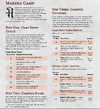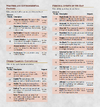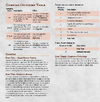Srathor
Vyemm Raider
- 1,913
- 3,119
A trick I used to use is let the dice choose. I used it for a ton of shit. Depending on what it was and the gradient needed. 25% chance increments use a D4. Get a 1 only 25% (roughly) is true. Get a 4 it is 100% true. Have folks roll dice when meeting an NPC. Use that to fuck with them cause you have them roll a D4 they are going to be WTF ing all over it. Can fine tune things or broad strokes it with that and it spices the game up for you as well.
And unreliable narration can be fun as fuck, but it can also strip all trust out of a DM/player role. Mileage may vary.
And unreliable narration can be fun as fuck, but it can also strip all trust out of a DM/player role. Mileage may vary.
- 3







